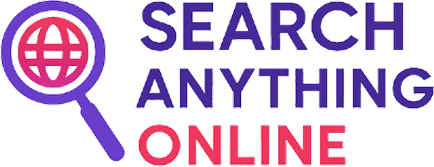
Introduction
In today's digital age, the internet is an indispensable resource for research. However, with the vast amount of information available, finding the right data can be a daunting task. The key to effective online research is not just about finding information, but finding the right information quickly and efficiently. This is where the concept of searching smarter, not harder, comes into play.
Why Efficient Online Research Matters
Efficient online research saves time and resources, allowing you to focus on analyzing and using the information rather than spending countless hours sifting through irrelevant data. Whether you're a student, a professional, or someone with a curious mind, honing your research skills can greatly enhance your productivity and knowledge base.
Challenges in Online Research
One of the main challenges of online research is the overwhelming amount of data. Another issue is the reliability of sources, as not all information available online is accurate or credible. Furthermore, the lack of time management can lead to inefficient research processes.
Top Tools to Enhance Your Online Research
1. Google Scholar
Google Scholar is an essential tool for academic research. It provides access to scholarly articles, theses, books, conference papers, and patents. Its advanced search capabilities allow you to filter results by year, which is particularly useful for finding the most recent research in your field.
2. Zotero
Zotero is a free, easy-to-use tool that helps you collect, organize, cite, and share research. It automatically senses content in your web browser and allows you to save it to your personal library with a single click. Zotero also integrates with word processors for seamless citation management.
3. Evernote
Evernote is perfect for researchers who need to organize their notes and ideas. With its powerful search features, you can easily find your notes, even if they are saved in various formats. Evernote's web clipper extension allows you to save web pages directly to your notes for easy access later.
4. Mendeley
Mendeley is both a reference manager and an academic social network. It enables you to organize your research, collaborate with others online, and discover the latest research in your field. You can also use Mendeley to generate citations and bibliographies in a variety of styles.
5. Trello
Trello is a project management tool that can be used to organize your research projects. By creating boards, lists, and cards, you can visually track your research progress and manage tasks efficiently. Trello's integration with other tools makes it versatile for collaborative research projects.
Tips for Smarter Online Research
Utilize Advanced Search Techniques
Using advanced search operators can significantly improve the relevance of your search results. Learn how to use operators like quotes for exact phrases, minus signs to exclude words, and site-specific searches to target particular domains.
Evaluate Sources Critically
Not all information on the internet is reliable. Always evaluate the credibility of your sources by checking the author's credentials, the publication date, and cross-referencing with other reputable sources. This ensures the accuracy and reliability of your findings.
Stay Organized
Effective organization is key to efficient research. Use digital tools to categorize and store your information. Regularly update and review your notes to keep track of your research progress and ensure nothing important is missed.
Conclusion
Searching smarter, not harder, is vital in today's information-rich world. By using the right tools and techniques, you can enhance your research efficiency and make the most of the vast resources available online. Embrace these tools and strategies to streamline your research process and achieve better results with less effort.
Related Articles





